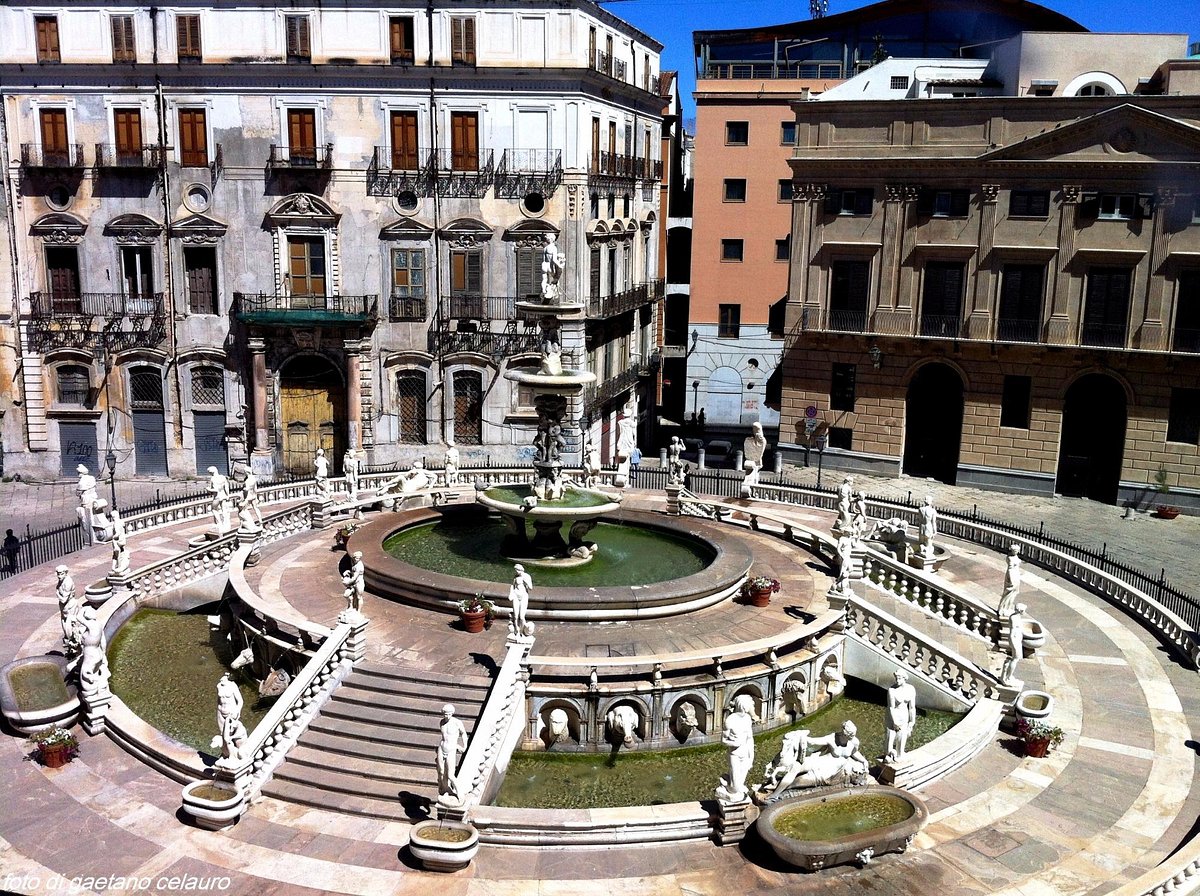
Fontana della Vergogna (Fontana Pretoria) (Palermo) Lo que se debe
For this reason and because of the nudity of the statues, the square became known as "Piazza della Vergogna" (Square of Shame). Read more. Written 25 May 2023. This review is the subjective opinion of a Tripadvisor member and not of Tripadvisor LLC. Tripadvisor performs checks on reviews as part of our industry-leading trust & safety standards.
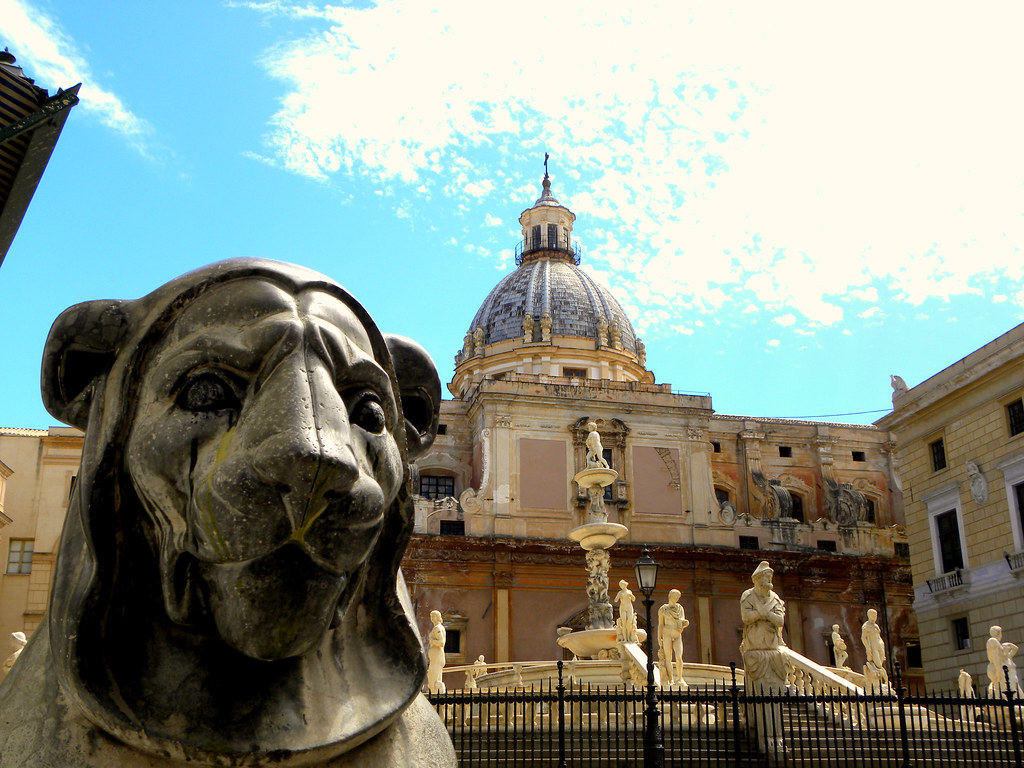
Piazza della vergogna Palermo Piazza Pretoria a Palermo,… Flickr
Piazza della Vergogna, also known as the Square of Shame, is a historic monumental fountain in Palermo, Sicily, famous for its statues and the shame they bro.
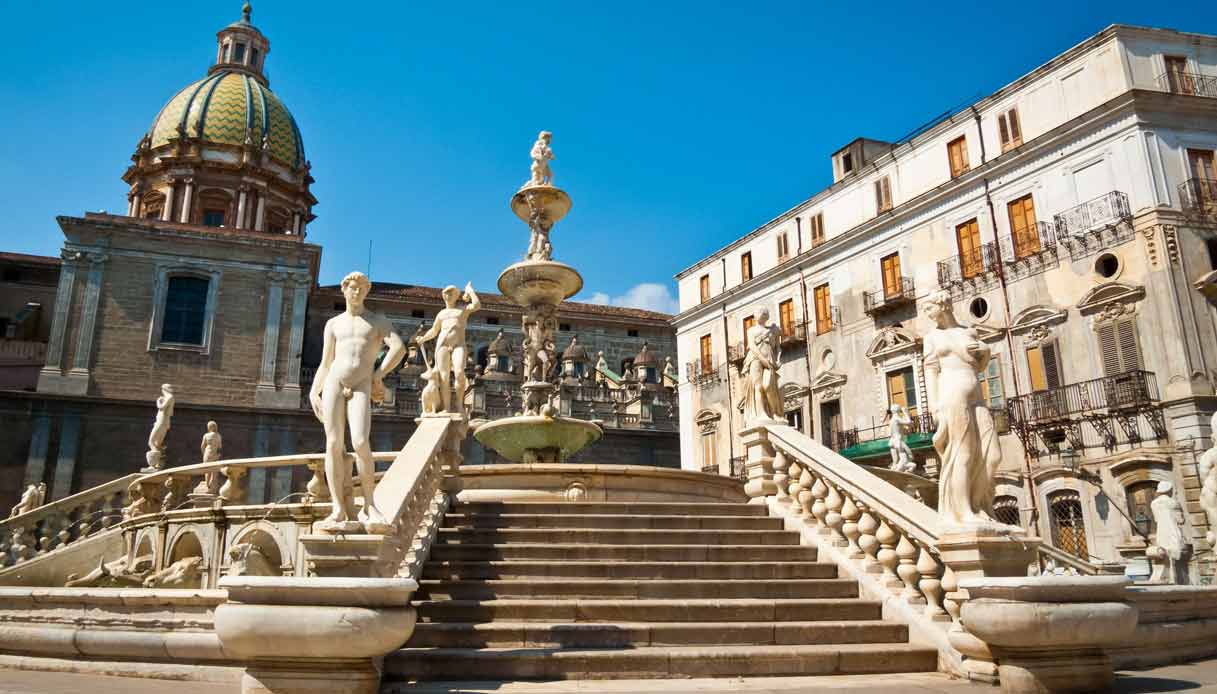
Cosa si nasconde sotto la “Fontana della Vergogna”, la più famosa di
Pretoria Square is one of the most beautiful squares in Palermo, located in the heart of the ancient city. The Square is also known as Piazza della Vergogna (Shame Square) and it hosts a beautiful fountain that fills its core and several buildings all arranged around it, including the town hall, called Palazzo delle Aquile and one of the side walls of the Saint Caterina splendid church.
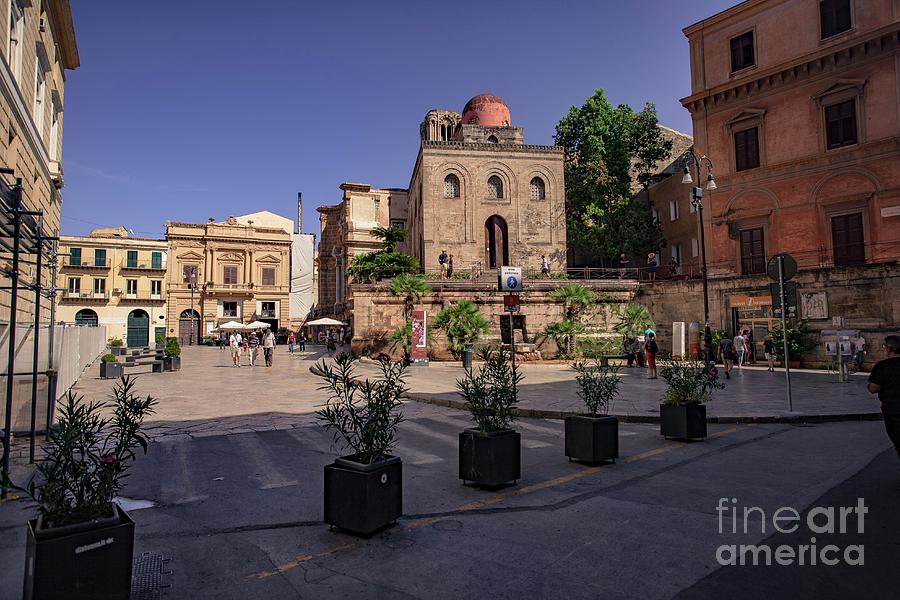
Piazza della Vergogna in Palermo 8 Photograph by Filippo Carlot Fine
Piazza Pretoria is at the limits of the district of Kalsa, near the corner of Cassaro with Via Maqueda, just a few meters from the Quattro Canti, the intersection where all the four ancient quarters intersect, in the city of Palermo, region of Sicily, Italy.. History. At the center of the square is the Fontana Pretoria; this fountain had originally been designed in 1554 by Francesco Camilliani.

Palermo 12 rzeczy do zrobienia wakacje na Sycylii
Piazza Pretoria. Only few metres away from Quattro Canti lies Piazza Pretoria, also known as piazza della Vergogna (square of Shame). The history of this square is connected to that of a fountain bought by the Senate of Palermo in 1573. Palermo people started to call it square of Shame both because of the nude statues and because it was.

Introduction to Palermo Sicily Tour Context Travel Context Travel
Piazza Pretoria, also known as Piazza Della Vergogna, is located on the edge of the Kalsa district, near the corner of Cassaro with Via Maqueda, a few meters from the Quattro Canti, the exact center of the historic city of Palermo. At the center of the square is the Pretoria Fountain, the work of Francesco Camilliani built-in 1554, which, occupying a large part of its extension, strongly.
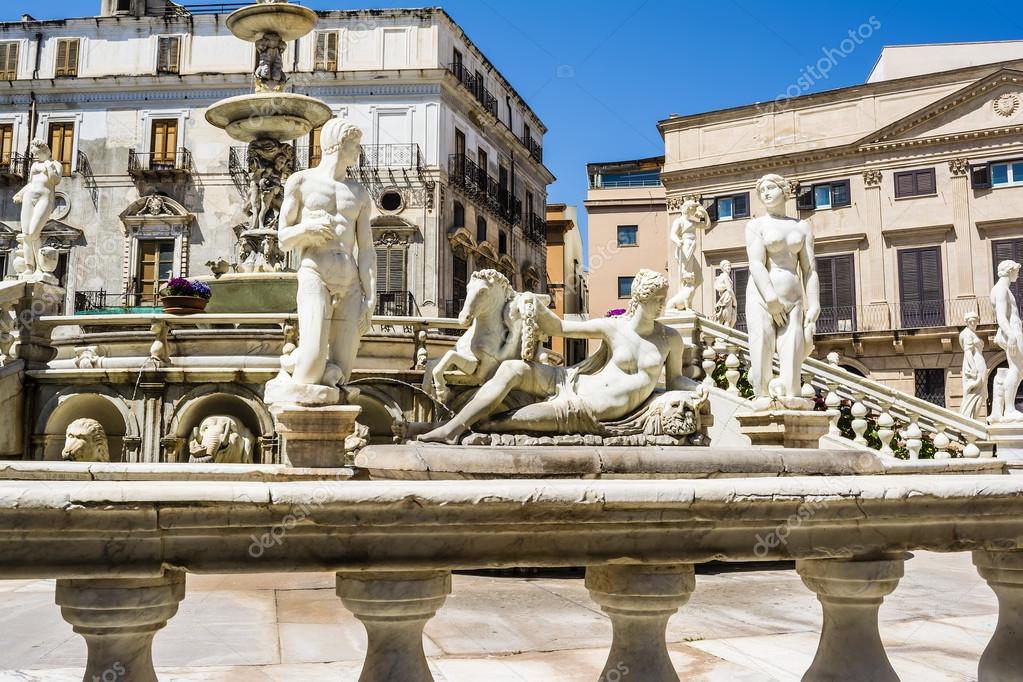
Statue in Piazza Pretoria, Piazza della Vergogna a Palermo, Sicilia
At this point, going to the right we can climb up to the Cathedral and the Palazzo Reale, taking the left we can go down to the sea, passing the Mercato della Vucciria and the Piazza Marina district, while proceeding straight on, we reach Piazza Pretoria (also called Piazza della Vergogna), the Martorana and San Cataldo, the streets of the old.

Piazza della Vergogna a Palermo ricarolricecitocororo nel 2020
Piazza Pretoria si trova poco distante dai Quattro Canti, esattamente nel baricentro della città storica di Palermo ed è comunemente chiamata "Piazza della Vergogna" si pensa per la nudità delle statue che compongono la bellissima fontana. Questa è scolpita tutta in marmo bianco di Carrara per opera dello scultore Francesco Camilliani che la realizzò a Firenze nel 1554 e.

Piazza Della Vergogna Palermo, Sicilia
Ve la raccontiamo. La storia di Piazza della Vergogna. Piazza Pretoria assunse le dimensioni con cui oggi si presenta nel 1581: qualche anno prima il senato di Palermo aveva deciso di acquistare e.

Piazza della Vergogna tra storia e leggenda Segnalazione a Palermo
Piazza Pretoria. Coordinate: 38°06′56″N 13°21′43″E. Piazza Pretoria, si trova sul limite del quartiere della Kalsa, in prossimità dell'angolo del Cassaro con via Maqueda, a pochi metri dai Quattro Canti, centro esatto della città storica di Palermo .
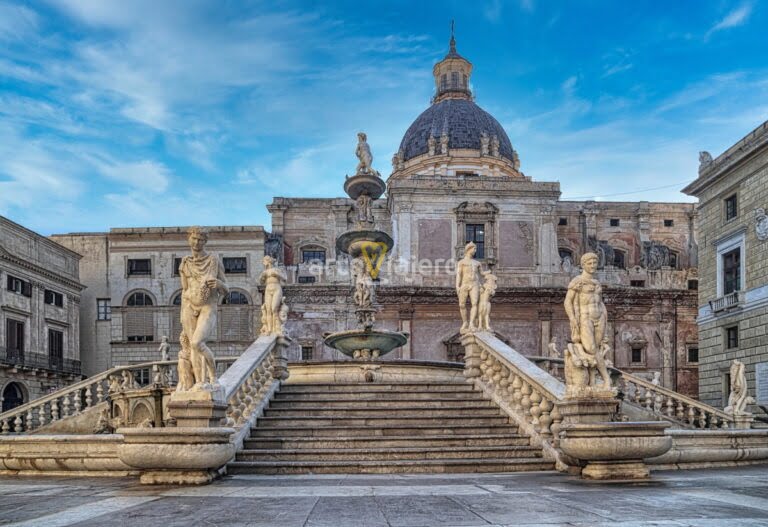
La Piazza Pretroria y Fontana della Vergogna ArteViajero
Immediately south and east is grandiose Piazza Pretoria, also known as Piazza della Vergogna, the square of shame, for the thoroughly naked statues of nymphs, tritons and leaping river gods (senza.
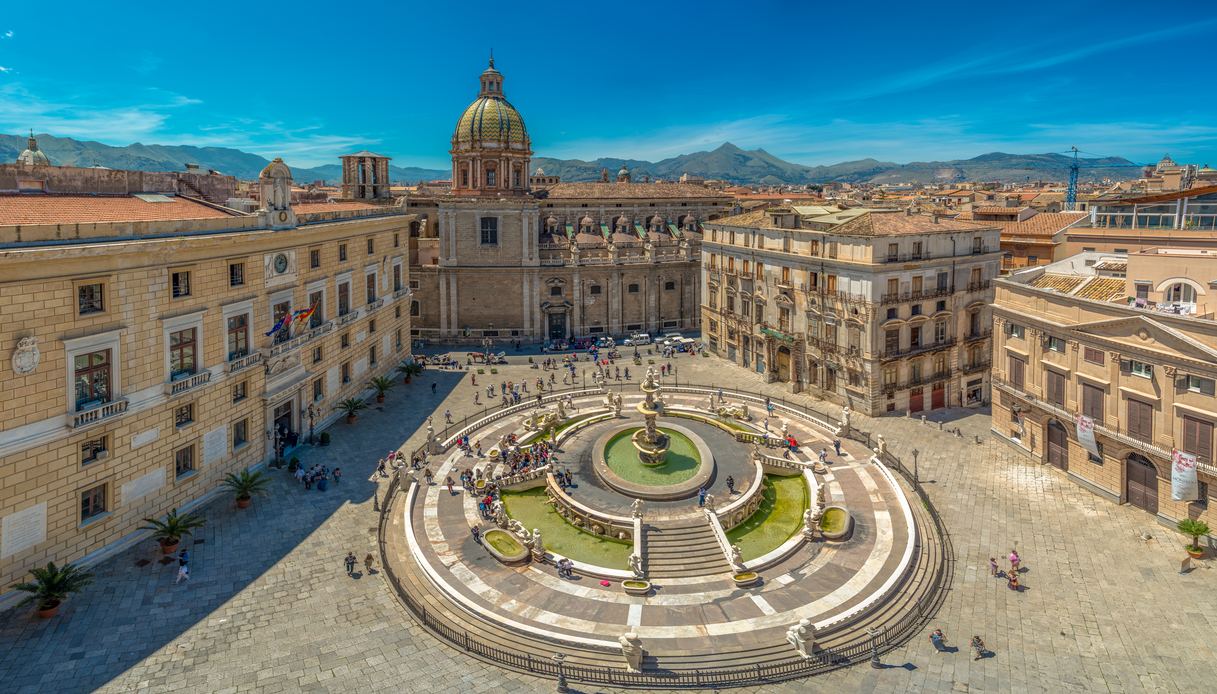
Cosa si nasconde sotto la “Fontana della Vergogna”, la più famosa di
Piazza Pretoria. A pochi metri dai Quattro Canti si trova Piazza Pretoria, nota anche con il nome di piazza della Vergogna. La storia di questa piazza è legata a quella di una fontana acquistata nel 1573 dal senato palermitano. I palermitani iniziarono a chiamarla piazza della Vergogna sia a causa della nudità delle sue statue, sia perchè.
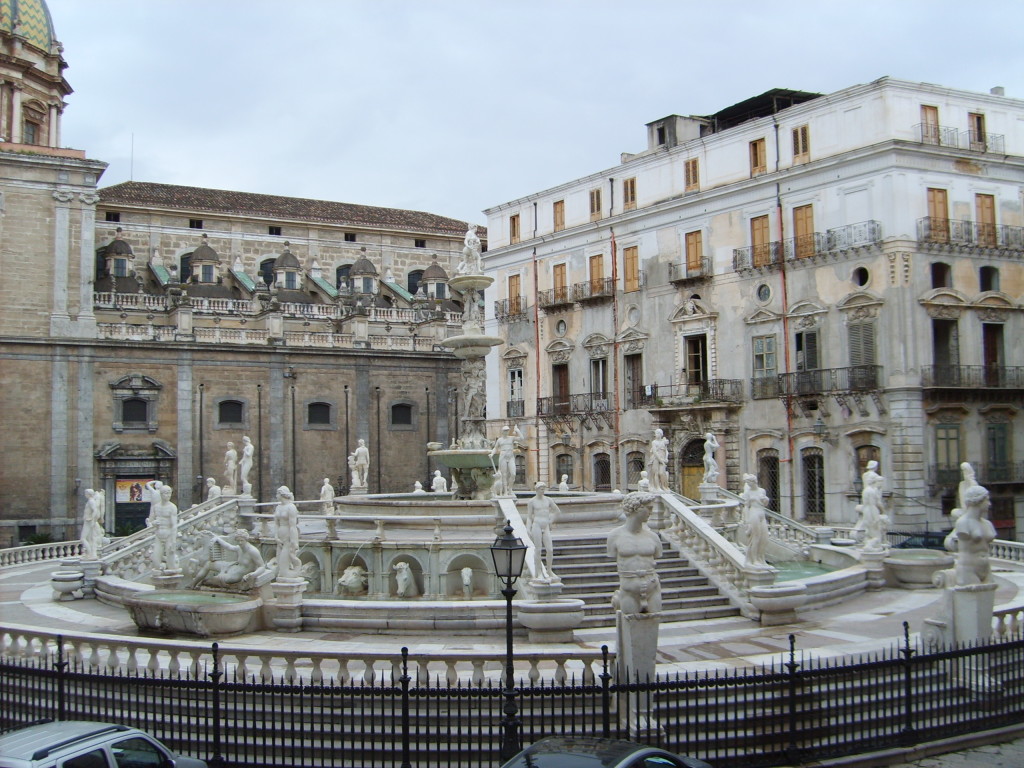
Le fontane di Palermo, da Monreale a Piazza della Vergogna
Here visitors will find the city's great monuments and key landmarks such as the Mercati Storici, Piazza Pretoria, better known as Piazza della Vergogna (the Square of Shame), and the Quattro Canti, a Baroque square where the historic quarters meet: Loggia, Kalsa, Albergheria and Capo. The Mercati Storici, the throbbing pulse of the Sicilian.

Piazza Della Vergogna Palermo, Sicilia
Sicily Another version of the Coat of Arms, found on the gonfalon. Sicily (Italian: Sicilia [siˈtʃiːlja] ⓘ; Sicilian: Sicilia [sɪˈ(t)ʃiːlja] ⓘ) is the largest and most populous island in the Mediterranean Sea and one of the 20 regions of Italy.It is one of the five Italian autonomous regions and is officially referred to as Regione Siciliana.The island has 4.8 million inhabitants.
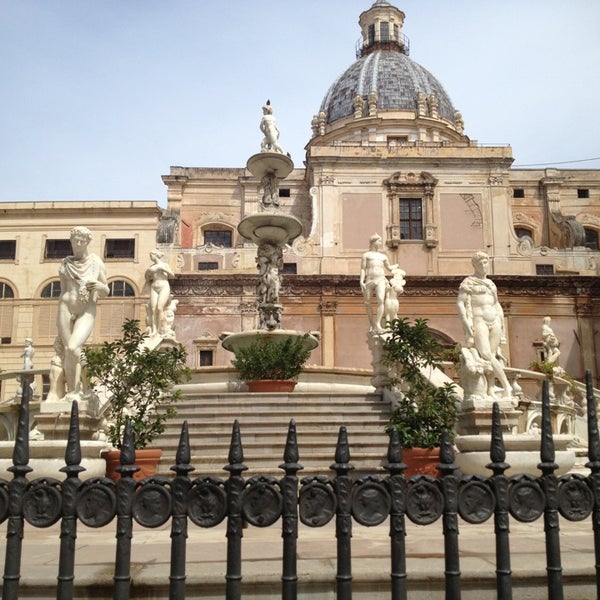
Piazza Della Vergogna Palermo, Sicilia
Located in Piazza Pretoria, also known as Piazza della Vergogna (The Square of Shame), the 16th-century circular fountain contains mostly nude statues of men, ladies (The term generally used is not gender correct/polite, so I changed it to "ladies." Why do many people use an unkind term for nude women, and not for nude men?), mermaids.

Piazza della Vergogna Parlemo, Sicily, Italy . better seen… Flickr
The Praetorian Fountain (Italian: Fontana Pretoria) is a monumental fountain located in Piazza Pretoria in the historic center of Palermo, region of Sicily, Italy.The fountain dominates the piazza on the west flank of the church of Santa Caterina, and is one block south of the intersection of the Quattro Canti.The fountain was originally built in 1544 in Florence by Francesco Camilliani, but.